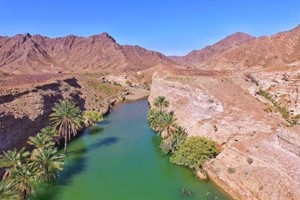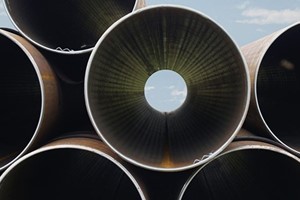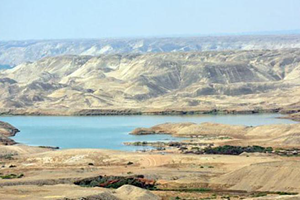Muscat – Oman falls short of 316mn m3 (cubic metres) of water every year, according to the Ministry of Agriculture, Fisheries and Water Resources (MAFWR).
The sultanate participated with countries around the world in celebrating World Water Day – observed on March 22 every year – under the slogan ‘Ground Water – Making the Invisible Visible’ on Tuesday.
MAFWR has exerted great efforts to manage and protect water resources in Oman.
According to the ministry, the annual renewable water resources of the sultanate is estimated at about 1,318mn m3 and the pressure on these resources is increasing, especially for agriculture, which claims a share of approximately 83 per cent of the annual water needs of the country.
Groundwater – mostly feed by rain – is the main source of fresh water in the sultanate. It represents 83 per cent of the fresh water in the sultanate, followed by desalinated water (ten per cent), surface water (five per cent), and treated wastewater (two per cent).
Oman’s cloud seeding efforts have seen the installation of 12 stations atop mountains in the Eastern and Western Hajar range and Dhofar governorate. Additionally, a monitoring system comprising a total of 634 rain gauges have been installed in areas located within project impact zones.
Cloud seeding is one among several initiatives of the government in support of the sultanate’s goal to ensure sustainable fresh water supply.
Cloud seeding technology has proved successful in the sultanate in enhancing rainfall in the last six years – 15 to 18 per cent more rain annually – according to official data collected from various sources, including rain gauges installed around cloud-seeding stations in various governorates.
The ministry has also implemented a project to connect six rain stations in the past year.
Data for 2021 indicates there were a total of 174 dams – 56 ground recharges, 115 surface storage and three flood protection – with a combined storage capacity of 325.767mn m3.
MAFWR issued 876 licenses to drill new wells in 2021.
The sultanate’s total water production in 2022 was 39.7mn m3 at the end of January, an increase of 4.6 per cent compared to the same period last year.
The ministry is currently working on implementing a project to introduce modern irrigation systems in farms, with the aim of rationalising water use and preserving water wealth, by collecting aflaj water in ground tanks linked to a network of water channels.
MAFWR organized several events to celebrate World Water Day in the Governorate of Muscat on Tuesday, including clean-up activities in a number of aflaj in the wilayat of Bausher in which school students participated. Awareness campaigns and exhibitions were also held on the importance of water.













